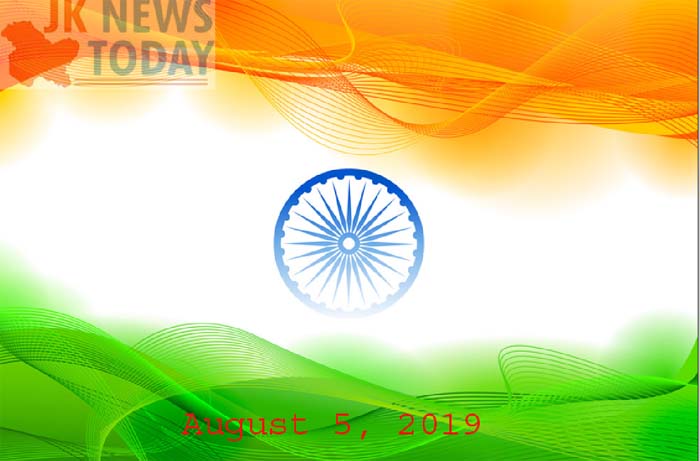JK News Today Commentary
Jammu, July 25:
August 5, 2019, this date denotes a watershed change in the history of Jammu and Kashmir. It is showing signs of the intentions with which the measure of scrapping of Article 370 and article 35 A was taken by the Centre .
Clear as it is now when days are approaching to the first anniversary of the momentous decisions that, as Prime Minister Narendra Modi had put it, “ now India is one nation with one constitution.” There is no discrimination between the peoples’ on the basis of the nature of their citizenship – the age of the dual citizenship in J&K is over , and new era of equality is getting embedded in the minds of the people , which is more important than anything else in a country like India where democracy obligates on the government to ensure equality for all its citizens.
Under Article 370 that was negotiated and inserted into the Indian constitution as a “ temporary provision” due to an unprecedented situation created by Pakistan sponsored invasion of Jammu and Kashmir in October 1947 , taking advantage of vacillation of last Dogra king of the state, Maharaja Hari Singh , who nurtured ambitions of keeping the state independent and walked into the realm of complacency after having signed a standstill Agreement with Pakistan. All his hopes and trust in Pakistan keeping its word were dashed when tribesmen invaded the state with the active support of Pakistan army.
Maharaja did sign instrument of accession with India on October 26, 1947, when the damage was already done. It was with great grit and determination that the Indian army pushed back the invaders , but it forward movement was halted for unknown reasons as the then Prime Minister Jawahar Lal Nehru took the matter to the United Nations without understanding the unintended consequences of such a folly.
The flaw with Article 370 and Article 35 A , at least in the matter of citizenship , was that the permanent residents of J&K had all the rights of being Indian citizens, while the citizens elsewhere in the country had no citizenship rights within the jurisdiction. These were not to be availed even by the people who had been residing in Jammu and Kashmir for decades together. These included West Pakistan refugees , who were prosecuted and hunted by Pakistanis in a communal frenzy, Valmikis who were specially requested by the J&K government to keep Jammu clean, Gurkhas, and several others . They had no right to live as dignified citizens like the rest of their counterparts in other parts of the country.
The special status and separate constitution of Jammu and Kashmir was perpetuating this discrimination with these people generation after generation; no central law could be applied to J&K without the approval of the state legislature , and any move to grant citizenship to these deprived sections in J&K was stalled with alarming voices of the demographic changes.
The Ghulam Nabi Azad Government had tried its best to get domicile for West Pakistan refugees but he succumbed to the pressure mounted by Kashmir-centric parties and withdrew his proposal . The sufferings of these people perpetuated and at the end of the day were they were not only treated as second class people, but also reflected as people who posed threat, of course it was all imaginary, to the very ethos, culture and demography of the state.
August 5 changed all this. They became equal citizens of a democratic nation irrespective of the place where they were living. It was justice for them at last.




